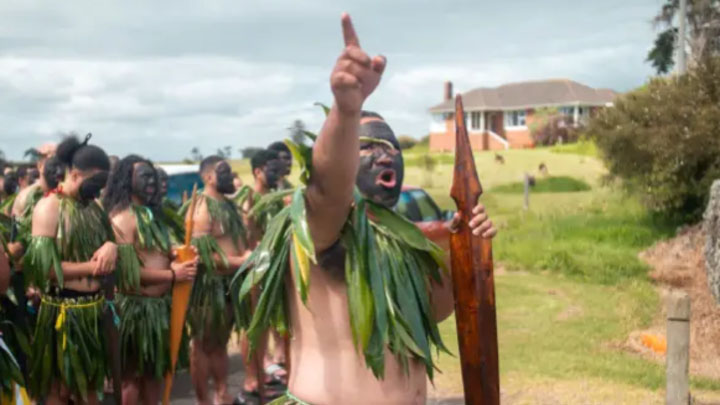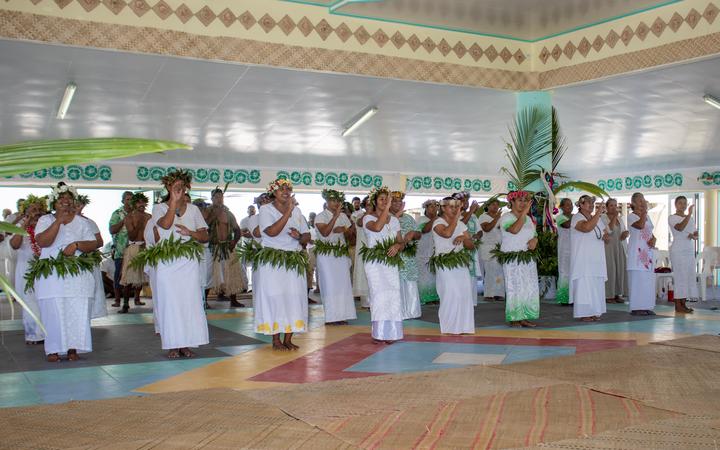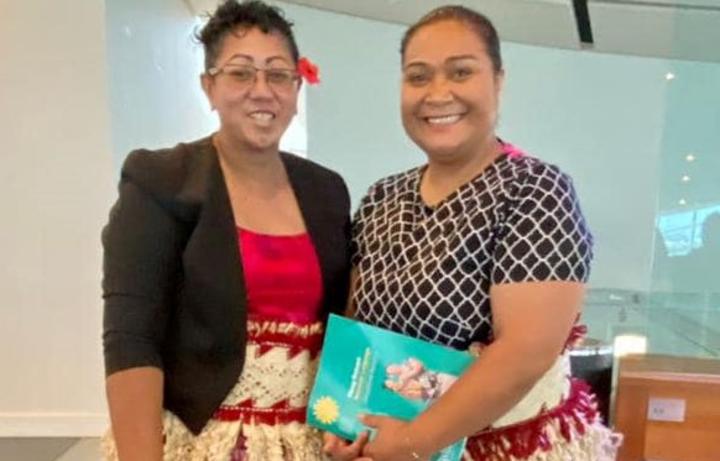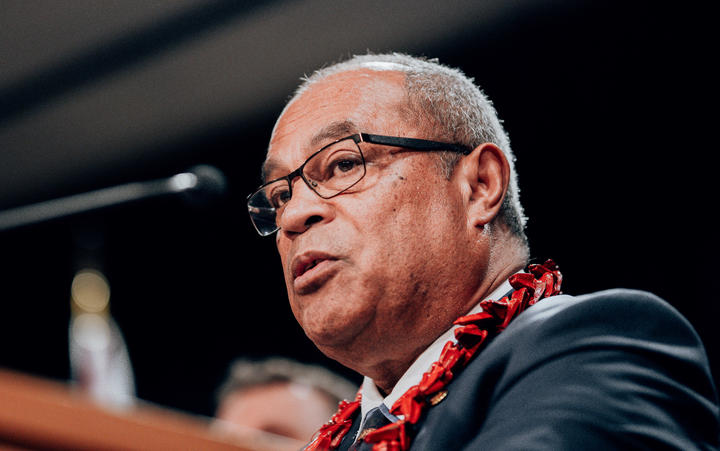Pacific Languages Survey: Call for more support to NZ’s realm states
Wednesday 8 December 2021 | Written by RNZ | Published in New Zealand, Regional

Photo: Auckland War Memorial Museum
A Pacific community leader in New Zealand says the government must take some responsibility for the decline in the number of Pasifika language speakers across Aotearoa.
The government launched the Leo Moana O Aotearoa Pacific Languages Survey last month to address the decline in Pasifika speakers in New Zealand.
The survey will give researchers valuable insights into the state of Pacific languages in Aotearoa, said the Minister for Pacific Peoples Aupito William Sio.
The survey is part of a wider project that will support the revitalization, and sustainability of languages such as Te Gagana Tokelau, Vagahau Niue, Te Reo Māori Kuki 'Āirani, Gagana Samoa, Lea Faka-Tonga, Te Gana Tuvalu, Vosa Vakaviti, Fäeag Rotųam and Te taetae ni Kiribati.
The 2018 Statistics NZ data showed 381,642 or 8 percent of the total population were Pacific Islanders - up from 7.4 percent in 2013.
However, only 37 percent of Pasifika in Aotearoa could speak their own language.
"What's special about the online survey is that it will tell us about people's attitudes to Pacific languages in New Zealand, including the importance and value that people place on their own languages," Aupito said.
"It's also the first time data about the use of Pacific languages in New Zealand has been gathered in this way.
"Sadly, the number of people using our languages in Aotearoa has declined over the past two decades, and in the case of some languages, to the point where we are in danger of losing some.
"Our Pacific languages must be valued and used," Aupito said. "They're the cornerstone of our Pacific cultures and identities."

The Census also shows the proportion of speakers for the Cook Islands, Niuean, Tokelauan, Samoan, Tongan, Fijian and Tuvaluan languages have decreased over time since 2001.
Aupito said some of languages are in danger of being lost altogether.
"The United Nations Education, Scientific and Cultural Organisation (UNESCO) has classified the Cook Islands, Niuean, Tokelauan, and Tuvaluan languages as vulnerable or endangered."
In 2019, the government committed $20 million over four years to support Pacific languages in Aotearoa.
But critics say the government has not done enough to address this growing problem.
Mele Nemaia, chair of the Vagahau Niue Trust, agrees.
There are close to 31,000 Niueans in Aotearoa with 80 percent of them living in Auckland. But only 20 percent of the total population can speak Vagahau Niue.
Nemaia said this is evident the government has not paid much attention to to these communities.
"Where is the obligation to Niue, Tokelau and the Cook Islands? We are a minority within a minority. This is a numbers game. We're going to miss out.

"The population of the Niue people is nowhere near the population of our Tongan and our Samoan colleagues. Don't just lump us all into one basket," Nemaia said.
"Yes, they gave us money to run these language weeks but language is just not a one week activity. It is our everyday, it's our livelihood, our language. It's my identity. So they gave us so little and in return they ask us for so much."
Another minority ethnic group in Aotearoa is Rotuma, a dependent of Fiji. There are fewer than 1,000 Rotumans in New Zealand and only one third of them can speak Fäeag Rotųam.
Rotuman language tutor Fesaitu Solomone said she's also concerned at the low number of Pacific language speakers in Aotearoa.
While there has been a slight increase in the number of Rotuman speakers in her community, Solomone said she wants to see more of her people speaking their language.
"There's a lot of fluent speakers but if you look at the younger population that we have now, the generation in the next five to 10 years, there's the gap that we don't know.
"As the elders and the older generation starts to leave, then our young ones will be at risk, very high risk because not many of them speak the language."
Mele Nemaia is also urging Niueans to seriously look at the future of their language and culture.
"And especially our young people. Alot of them are actually hungry for their language. But sometimes it's just a matter of not knowing where to start or the length of time. Is it not something that it's just a one off thing? How can this be a continuation of learning Vagahau Niue?"

Aupito William Sio said the categorisation of languages within the draft Pacific Languages Strategy provides a framework that will allow the Ministry of Pacific Peoples to focus funding according to language needs and vitality, constitutional status, demographic size (when compared with home country) and other factors.
Priority is given to those language groups for whom the decline is more rapid, including the realm countries, Aupito said.
"The strategy aims to enhance a more co-ordinated approach across government so that those language groups can be targeted more specifically.
"The Ministry for Pacific Peoples is working with other ministries, including Education, Culture and Heritage, Foreign Affairs and Trade, to ensure investment is impactful and meets the language needs of each ethnic group.
"Cabinet approved the ministry to undertake targeted consultation over a six-week period. In adopting a targeted approach, the ministry was also responding to feedback from communities saying they were experiencing consultation fatigue."
Aupito said key target groups included ethnic specific groups, education-focused organisations, youth, academics, and community organisations with pivotal roles in language revival.
"The consultation was promoted in a range of ways including through a press release by the minister, the Ministry's website and Fetu Pasifika newsletter, a range of social media platforms, email notices, announcements, peak bodies / professional groups and associations, churches, community engagements, as well as through media interviews such as on radio via Pacific Media Network (PMN).
"In addition to Zoom focus groups and key information interviews, the ministry's 'Let's Chat' campaign via its own social media platforms aimed to ensure as many people as possible were invited to provide online feedback through an easy-to-complete webform template, full written submissions or by e-mailing the ministry directly."
Although consultation is complete, people are welcome to continue to provide feedback on what is needed to support their language by e-mailing LetsChat@mpp.govt.co.nz," Aupito said.
The ministry aims to finalise the strategy within the first half of next year.















































